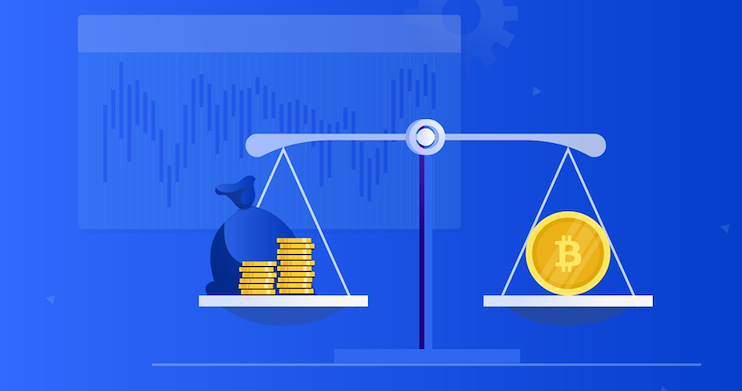Understanding blockchain supply chain management software pricing is crucial for businesses looking to revolutionize their operations through transparent, secure, and efficient supply chain solutions. As companies increasingly recognize the transformative potential of blockchain technology in supply chain management, the question of cost becomes paramount in decision-making processes. The blockchain supply chain software market has evolved significantly, offering various pricing models that cater to different business sizes and requirements. From enterprise-level solutions to small business platforms, the pricing landscape varies dramatically based on features, scalability, and implementation complexity. This comprehensive guide will help you navigate the intricate world of blockchain supply chain management software pricing, enabling you to make informed decisions that align with your budget and operational goals.
What Influences Blockchain Supply Chain Management Software Pricing?
Several key factors determine the cost structure of blockchain supply chain management solutions. The complexity of your supply chain network plays a significant role, as more intricate networks require sophisticated tracking capabilities and advanced analytics features.

The number of stakeholders involved in your supply chain directly impacts pricing. Software providers typically charge based on the number of users, suppliers, or nodes in your network. Additionally, the level of customization required for your specific industry needs can substantially affect the overall investment. Integration requirements with existing enterprise resource planning (ERP) systems, customer relationship management (CRM) platforms, and other business applications also influence pricing structures. Companies with complex IT infrastructures may face higher implementation costs due to the need for custom APIs and middleware solutions.
Types of Blockchain Supply Chain Management Software Pricing Models
Subscription-Based Pricing
Most blockchain supply chain platforms adopt subscription-based pricing models, offering monthly or annual payment options. These models typically range from $500 to $5,000 per month for small to medium businesses, while enterprise solutions can cost $10,000 to $50,000 monthly. Subscription pricing often includes software licenses, basic support, regular updates, and limited customization options. This model provides predictable costs and allows businesses to scale their usage based on growing needs.
Per-Transaction Pricing
Some providers charge based on transaction volume, making this model attractive for businesses with fluctuating supply chain activities. Per-transaction fees typically range from $0.10 to $2.00 per recorded transaction, depending on the complexity and data requirements. This pricing structure works well for seasonal businesses or companies with variable supply chain volumes, as costs directly correlate with actual usage.
Enterprise Licensing
Large corporations often prefer enterprise licensing agreements that provide unlimited users and transactions for a fixed annual fee. These comprehensive packages typically start at $100,000 annually and can exceed $1 million for global implementations. Enterprise licenses usually include dedicated support, extensive customization, training programs, and service level agreements (SLAs) that guarantee uptime and performance standards.
Popular Blockchain Supply Chain Software and Their Pricing
IBM Food Trust
IBM Food Trust represents one of the most established blockchain supply chain solutions, with pricing starting at approximately $100 per month for basic tracking features. Enterprise implementations can cost between $500,000 to $2 million annually, depending on network size and customization requirements. The platform offers comprehensive traceability features, regulatory compliance tools, and integration capabilities with existing IBM systems.
VeChain ToolChain
VeChain ToolChain provides flexible pricing options starting at $1,000 monthly for small businesses. Mid-market solutions range from $5,000 to $20,000 monthly, while enterprise packages require custom quotations based on specific requirements. The platform specializes in product authentication, supply chain transparency, and IoT integration capabilities.
Walmart’s Hyperledger Fabric Implementation
While Walmart’s internal solution isn’t commercially available, similar Hyperledger Fabric-based implementations typically cost between $50,000 to $500,000 for initial setup, with ongoing maintenance fees of $10,000 to $100,000 annually.
Cost Breakdown: Implementation vs. Ongoing Expenses
Initial Implementation Costs
Implementation costs typically represent the largest upfront investment in blockchain supply chain management software. These expenses include software licensing, system integration, data migration, staff training, and consultant fees. Small business implementations generally require $25,000 to $100,000 in initial investment, while enterprise deployments can range from $500,000 to $5 million. The wide variance depends on network complexity, customization requirements, and integration needs.
Ongoing Operational Expenses
Monthly operational costs include subscription fees, transaction charges, maintenance, support, and potential upgrade expenses. Businesses should budget 15-25% of their initial implementation cost annually for ongoing expenses. Additional costs may arise from increased transaction volumes, expanded user bases, or enhanced feature requirements as businesses grow and evolve their supply chain operations.
ROI Considerations for Blockchain Supply Chain Investments
Calculating return on investment (ROI) for blockchain supply chain management software requires evaluating both direct cost savings and indirect benefits. Direct savings often come from reduced manual processes, decreased fraud prevention costs, and improved inventory management efficiency. Indirect benefits include enhanced brand reputation, improved customer trust, regulatory compliance advantages, and competitive differentiation. Many companies report ROI realization within 18-36 months of implementation, with annual savings of 5-15% of total supply chain costs. Risk mitigation represents another significant ROI factor, as blockchain solutions help prevent costly recalls, counterfeit products, and compliance violations that can result in substantial financial penalties.
Factors to Consider When Budgeting for Blockchain Supply Chain Software
Scalability Requirements
Consider your future growth plans when evaluating pricing options. Some platforms charge exponentially higher fees as your network expands, while others offer more linear scaling costs. Evaluate pricing structures for different user tiers and transaction volumes to avoid unexpected cost increases.
Integration Complexity
Assess your current technology stack and determine integration requirements early in the evaluation process. Complex integrations can double or triple implementation costs, making it essential to understand these requirements upfront.
Compliance and Security Features
Industries with strict regulatory requirements may need specialized features that increase software costs. However, these investments often pay for themselves through improved compliance and reduced regulatory risk.
Tips for Negotiating Better Blockchain Supply Chain Software Pricing
Leverage Multiple Vendor Quotes
Obtain detailed proposals from at least three vendors to establish market pricing benchmarks. Use competitive quotes to negotiate better terms and identify hidden costs that might not be apparent in initial proposals.

Consider Pilot Programs
Many vendors offer pilot programs or proof-of-concept implementations at reduced costs. These programs allow you to test functionality and demonstrate value before committing to full-scale implementations.
Negotiate Long-Term Contracts
Annual or multi-year contracts often provide significant discounts compared to monthly subscriptions. However, ensure contracts include flexibility for scaling and modification as your needs evolve.
Future Trends in Blockchain Supply Chain Software Pricing
The blockchain supply chain software market continues evolving, with pricing trends indicating increased competition and more flexible pricing models. As the technology matures, costs are generally decreasing while functionality improves. Cloud-based solutions are becoming more prevalent, reducing infrastructure costs and implementation complexity. This trend makes blockchain supply chain solutions more accessible to smaller businesses that previously couldn’t afford enterprise-level implementations. Artificial intelligence integration and advanced analytics capabilities are becoming standard features rather than premium add-ons, providing better value propositions for businesses investing in these technologies.
Conclusion
Understanding blockchain supply chain management software pricing requires careful consideration of multiple factors, from initial implementation costs to ongoing operational expenses. The investment in blockchain technology can deliver significant returns through improved transparency, reduced fraud, enhanced efficiency, and stronger regulatory compliance. As you evaluate blockchain supply chain management software pricing options, focus on total cost of ownership rather than just upfront costs. Consider your scalability requirements, integration needs, and industry-specific features when comparing vendors and pricing models.


